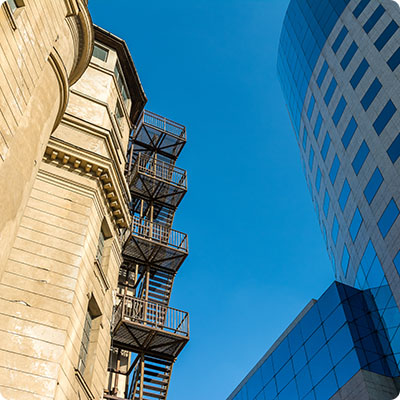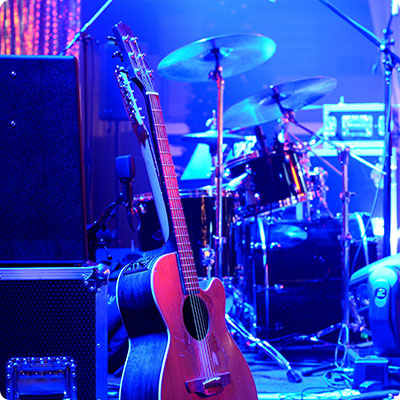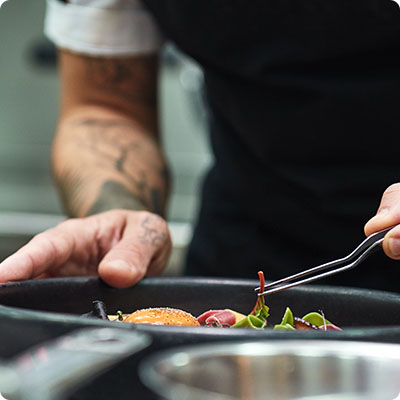Organize your stay India
 Money India
Money India
The currency is the Indian rupee, and you can pay with a credit card in hotels and major restaurants, and exchange euros in banks and hotels. One Indian rupee corresponds to €0.012. 1 € corresponds to 88 rupees (June 2023).
 Budget & Tips India
Budget & Tips India
The cost of living is very low in India. But tourist services can be top-of-the-range and therefore expensive. Services are more expensive in cities than in remote areas. Hotels from the mid-range upwards are of a good standard.
Taxes vary according to the price of the room. From Rs. 7,500 per night, the room corresponds to the "luxury" range and the tax rate is 27%.
 Passport and visas India
Passport and visas India
European nationals must apply for a visa online at www.indianvisaonline.gov.in between 34 days and 4 days before departure. It is valid for 6 months from the date of issue by the Indian consulate, not from the date of departure. It allows several entries into the country (multiple entries), but each stay may not exceed 90 days. It costs just over €105 to apply locally, or €135 by post. You can also apply for an e-visa on the same website. You complete your application and choose the duration of your visa (between 1 month and 5 years). You will receive an acceptance or refusal within 48 hours. The visa is issued at the border, and starts as soon as your passport is stamped. Your stay may not exceed 90 consecutive days. The cost depends on the duration of the visa.
 Driver's license India
Driver's license India
Renting a car in India is strongly discouraged. However, officially, you can rent a car with your French driving license. It's best to show an international license as well. A chauffeur-driven car is the safest option.
If you hire a two-wheeler, you will be asked to show your driving license. Make sure you bring a photocopy.
 Health India
Health India
Malaria circulates quietly in some very rural and wild areas. The Zika and chikungunya viruses circulate episodically. Find out before you leave if an epidemic is underway. Be very careful with the water. It is not potable for Westerners. Drink only bottled or treated water, even for brushing your teeth and rinsing your mouth. Always wash your hands before and after eating, even if you're using cutlery.
The public health system is clogged. If you have to go to hospital, opt for a private clinic.
 Mandatory vaccination India
Mandatory vaccination India
No vaccination is required to enter India. Only an anti-amaril certificate is required for travelers coming from infected areas, especially for the yellow fever virus. However, it is recommended to be vaccinated against hepatitis A and B.
 Security India
Security India
Be careful with your belongings on public transport, especially on night trains. Pickpocketing in certain urban areas can be a real problem. Avoid travelling to Jharkhand and Kashmir, in Manipur, which are currently high-risk areas.
 Time difference India
Time difference India
In France, the time difference is 3h30 in summer and 4h30 in winter. It's 3.30pm (or 4.30pm) in Delhi when it's midday in Paris.
 Spoken languages India
Spoken languages India
India's two official languages are Hindi and English. However, not all Indians speak English well... or Hindi, although in the north of the country it is much more common than in the south. There are a total of 23 official languages recognized by the Indian state, 122 major languages and over 1,500 other local languages or dialects.
 Communication India
Communication India
The already extensive network is expanding daily. Free wifi is now the rule in hotels and luxury restaurants. Power cuts are very frequent in India, so it's essential to save your e-mails or write them on a separate file so as not to lose them, especially if you're used to sending long, detailed accounts of your travels. If you go to a cybercafé, expect to pay an average of Rs. 30 per hour for a high-speed connection in major cities, and between Rs. 40 and Rs. 60 per hour in less developed areas (slow and sometimes laborious connection).
 Electricity and measurements India
Electricity and measurements India
Electricity. Power cuts are frequent, especially during the monsoon season. It's best to stay in an establishment with a generator, or bring a flashlight. Voltage in most places is 220 volts. You don't need an adapter.
Weights and measures. The metric system is the most commonly used.
 Luggage India
Luggage India
If you're traveling solo, pack the bare essentials. You'll need a padlock, for all those traveling in cheap hotels, a mosquito net, mosquito repellent and a waterproof cape for travel during the monsoon season, a Swiss Army knife, a water bottle, a headlamp (with batteries and spare bulbs), canvas pants, T-shirts with sleeves or shirts, cotton underwear, a light towel, sandals (when visiting temples, they're easier to remove) or plastic flip-flops, handy for showering when cleanliness leaves something to be desired, and socks.
In all cases, women should choose clothes that cover ankles and shoulders. Men's shorts are hardly considered. In the villages, you'll be seen as disrespectable and dirty. Equip yourself with sun cream, sunglasses and a hat or scarf. Shampoo, soap and detergent are readily available and very inexpensive. Women should bring their own sanitary items, especially if they use tampons. Good-quality condoms are readily available from chemists in major cities. For hair removal, Indian women all go to the "Beauty Parlour", which is everywhere. As for the men, they can indulge in the pleasures of the barber.





































